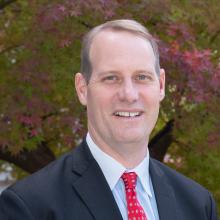
By Benjamin R. David, D.A.
After a quarter of a century prosecuting crime, I have learned this essential truth: Criminals take more money each year with a pen and a checkbook, to say nothing of a mouse click and a computer, than with a gun and a ski mask. And even though the economic harm is far greater with white-collar crimes, punishment tends to be far less because of the priority that prosecutors and judges give to fighting violent crime. Most people assume that the situation is hopeless and that judges are handcuffed by structured sentencing to put people on probation rather than sending them to prison. It turns out this belief is completely wrong.
The old adage “follow the money” holds true not only for catching criminals but also for holding them fully accountable for their crimes. In nearly every jurisdiction in America, if the amount of money taken in a fraud case exceeds a certain threshold — usually $100,000 — the offense is elevated to a category that is punished more harshly than a bank robbery with a loaded weapon. This threshold is rarely crossed in a single brazen offense. Far more often, the fraudster slowly drains one victim of smaller amounts over an extended period or scams multiple victims who are not related to each other. In either scenario, these losses can be combined to cross the $100,000 threshold and elevate the conduct to a major crime.
Additionally, in many fraud cases, two or more people join forces to commit the crime. Not only is each held responsible for the other’s acts (under legal theories called “conspiracy” and “acting in concert”) but each also may be held responsible for full repayment of the money that has been taken collectively by both parties (under a legal theory known as “joint and several liability”). Aggregating the losses that each of the defendants caused can also lead to crossing the magic threshold that separates minor offenses from ones that send people to prison.
Follow the money to catch thieves and put them where they belong: behind bars for a long time.
A North Carolina lawyer, Benjamin David has served as an elected district attorney since 2004. He is a past president of the North Carolina Conference of District Attorneys and currently holds executive office in the National District Attorneys Association.
WANT MORE INFORMATION FROM BEN? Check out his on-demand course from the Institute of Internal Auditors: “Why Internal Auditors Should Think Like a Prosecutor” (5 CPE credits).
Once an accountant or auditor uncovers a financial crime, the work of convincing a prosecutor to devote time and resources to take a case to trial begins. By learning to think like a prosecutor, auditors and accountants will be more effective at catching white-collar criminals, more likely to receive restitution for their clients, and more confident of a conviction.
Register for the course at theiia.org.